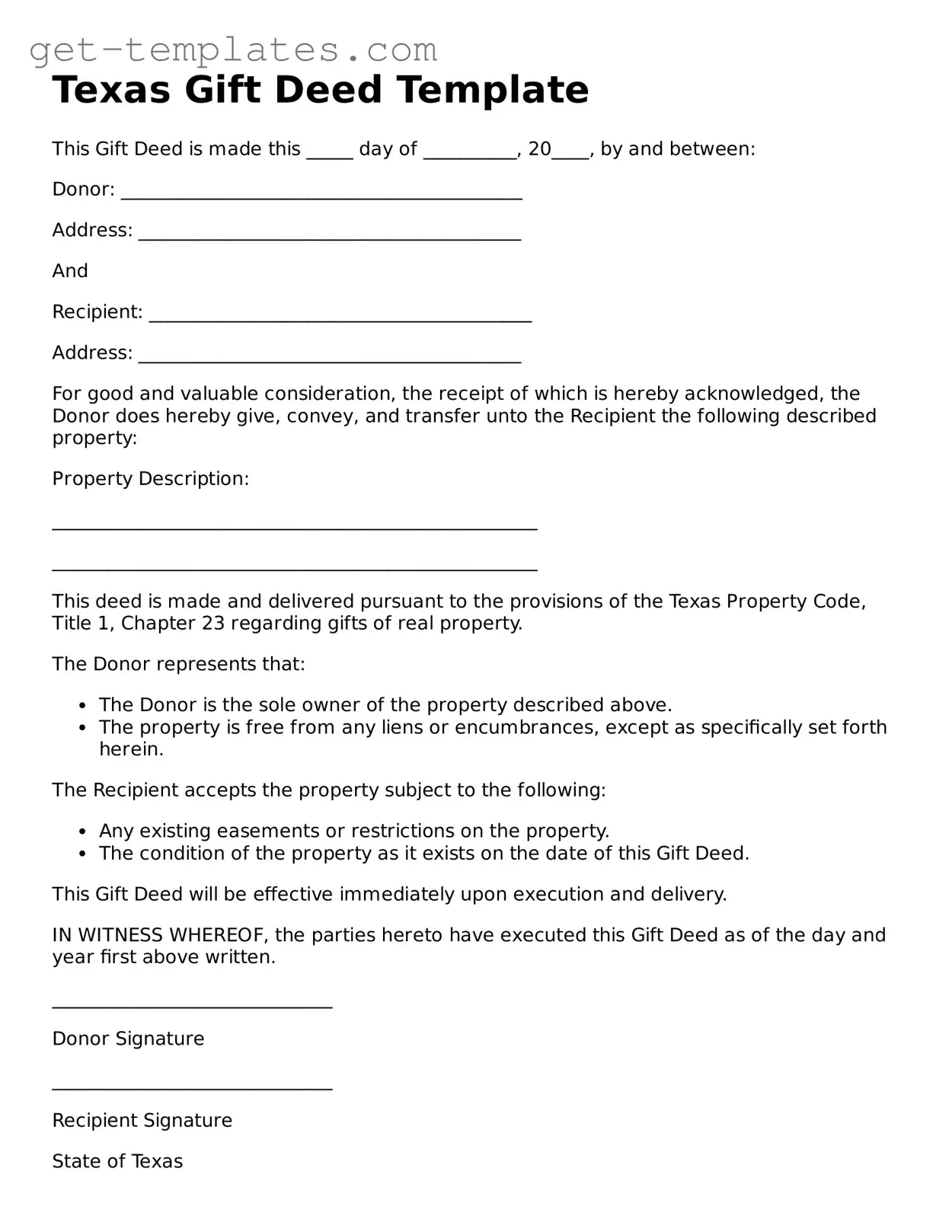Attorney-Approved Gift Deed Document for Texas
A Texas Gift Deed is a legal document that allows a property owner to transfer ownership of real estate to another person without receiving payment in return. This form is often used to give property to family members or friends as a gesture of goodwill. Understanding how to properly execute a Gift Deed is essential to ensure the transfer is valid and recognized by the state.
Get Document Online

Attorney-Approved Gift Deed Document for Texas
Get Document Online
You’re halfway through — finish the form
Finish Gift Deed online — edit, save, download made easy.
Get Document Online
or
⇓ PDF Form
